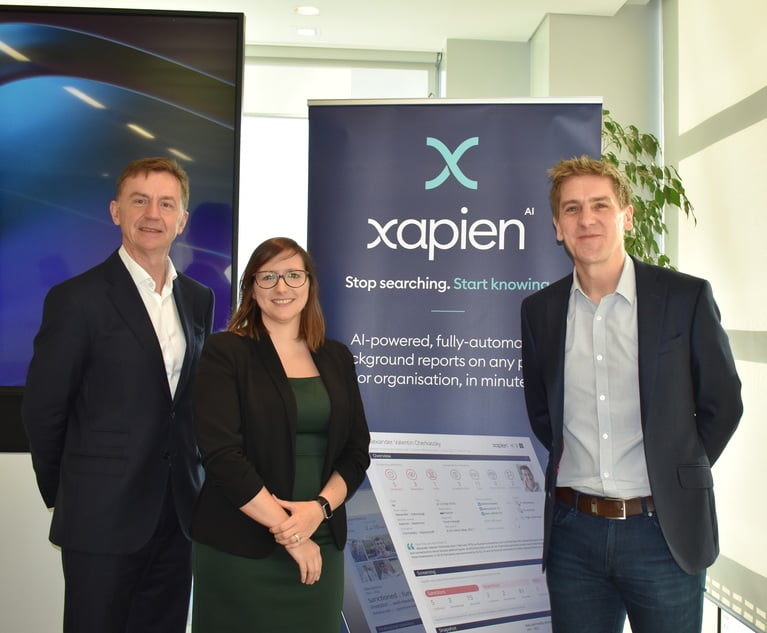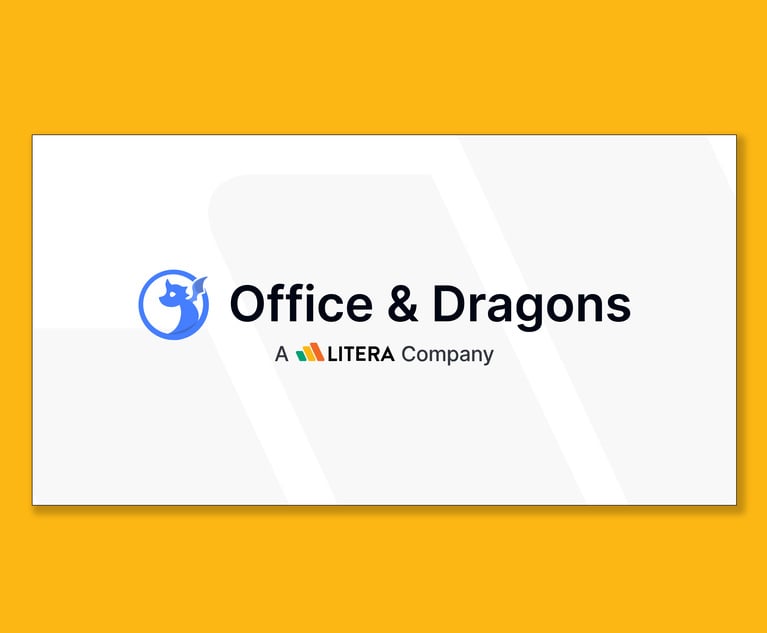Kleen Products ruling confirms significance of cooperation and proportionality in eDiscovery
While the truce in Kleen Products v Packaging Corporation of America has cooled off the parties' predictive coding dispute until next year, eDiscovery motion practice in this case is just now intensifying...
October 03, 2012 at 09:57 AM
3 minute read
While the truce in Kleen Products v Packaging Corporation of America has cooled off the parties' predictive coding dispute until next year, eDiscovery motion practice in this case is just now intensifying. In response to the current round of motions surrounding plaintiffs' interrogatories and document requests, US Magistrate Judge Nan Nolan has issued 9-28-12 Discovery Order emphasising that the parties' discovery efforts should be collaborative and not combative. In particular, Judge Nolan has highlighted the significance of both cooperation and proportionality in conducting discovery.
Just as she did to resolve the parties' disagreement over the use of predictive coding, Judge Nolan relied on a Sedona Conference publication to decide the instant dispute. Citing The Sedona Conference Cooperation Proclamation, Judge Nolan urged counsel to not "confuse advocacy with adversarial conduct" in addressing discovery obligations. In that regard, the plaintiffs were singled out for propounding an interrogatory that "violated the spirit of cooperation that this Court has encouraged." The interrogatory was particularly troublesome because it requested information about defendant Georgia-Pacific's organisational structure that plaintiffs agreed not to seek since defendant voluntarily provided plaintiffs with the names, titles and company division of the 400 employees who received litigation hold notices. Given that the court itself had brokered this arrangement, Judge Nolan opined that plaintiffs' tactic "could have a chilling effect on both litigants and courts to engage in candid discussions."
The interrogatory was additionally objectionable because it violated the proportionality standards found in Federal Rule 26(b)(2)(C). Not only did the laundry list of details that the interrogatory sought regarding the defendant's 400 employees create an undue burden, such information was readily available from sources that were "more convenient, less burdensome, and less expensive." Relying on the proportionality rule and The Sedona Conference Commentary on Proportionality in Electronic Discovery, the court granted the defendant's motion for protective order and quashed the interrogatory.
Judge Nolan's opinion repeatedly spotlights the role that cooperation and proportionality play in accomplishing discovery in a "just, speedy and inexpensive" manner. Moreover, the judge repeatedly praised the litigants for approaching eDiscovery in cooperative fashion: "The Court commends the lawyers and their clients for conducting their discovery obligations in a collaborative manner." Indeed, the court went so far as to identify the numerous instances where motion practice had been avoided, including the predictive coding and search methodology dispute.
The Kleen Products case demonstrates that courts have raised their expectations for how litigants will engage in eDiscovery. Staking out unreasonable positions in the name of zealous advocacy stands in stark contrast to the clear trend that discovery should comply with the cost cutting mandate of Federal Rule 1. Cooperation and proportionality are two of the principal touchstones for effectuating that mandate.
This content has been archived. It is available through our partners, LexisNexis® and Bloomberg Law.
To view this content, please continue to their sites.
Not a Lexis Subscriber?
Subscribe Now
Not a Bloomberg Law Subscriber?
Subscribe Now
NOT FOR REPRINT
© 2024 ALM Global, LLC, All Rights Reserved. Request academic re-use from www.copyright.com. All other uses, submit a request to [email protected]. For more information visit Asset & Logo Licensing.
You Might Like
View All

LexisNexis Responds to Canadian Professor’s Criticism of Lexis+ AI

Pinsent Masons Launches AML Artificial Intelligence Tool in Wake of SRA Crackdown
3 minute readTrending Stories
Who Got The Work
Michael G. Bongiorno, Andrew Scott Dulberg and Elizabeth E. Driscoll from Wilmer Cutler Pickering Hale and Dorr have stepped in to represent Symbotic Inc., an A.I.-enabled technology platform that focuses on increasing supply chain efficiency, and other defendants in a pending shareholder derivative lawsuit. The case, filed Oct. 2 in Massachusetts District Court by the Brown Law Firm on behalf of Stephen Austen, accuses certain officers and directors of misleading investors in regard to Symbotic's potential for margin growth by failing to disclose that the company was not equipped to timely deploy its systems or manage expenses through project delays. The case, assigned to U.S. District Judge Nathaniel M. Gorton, is 1:24-cv-12522, Austen v. Cohen et al.
Who Got The Work
Edmund Polubinski and Marie Killmond of Davis Polk & Wardwell have entered appearances for data platform software development company MongoDB and other defendants in a pending shareholder derivative lawsuit. The action, filed Oct. 7 in New York Southern District Court by the Brown Law Firm, accuses the company's directors and/or officers of falsely expressing confidence in the company’s restructuring of its sales incentive plan and downplaying the severity of decreases in its upfront commitments. The case is 1:24-cv-07594, Roy v. Ittycheria et al.
Who Got The Work
Amy O. Bruchs and Kurt F. Ellison of Michael Best & Friedrich have entered appearances for Epic Systems Corp. in a pending employment discrimination lawsuit. The suit was filed Sept. 7 in Wisconsin Western District Court by Levine Eisberner LLC and Siri & Glimstad on behalf of a project manager who claims that he was wrongfully terminated after applying for a religious exemption to the defendant's COVID-19 vaccine mandate. The case, assigned to U.S. Magistrate Judge Anita Marie Boor, is 3:24-cv-00630, Secker, Nathan v. Epic Systems Corporation.
Who Got The Work
David X. Sullivan, Thomas J. Finn and Gregory A. Hall from McCarter & English have entered appearances for Sunrun Installation Services in a pending civil rights lawsuit. The complaint was filed Sept. 4 in Connecticut District Court by attorney Robert M. Berke on behalf of former employee George Edward Steins, who was arrested and charged with employing an unregistered home improvement salesperson. The complaint alleges that had Sunrun informed the Connecticut Department of Consumer Protection that the plaintiff's employment had ended in 2017 and that he no longer held Sunrun's home improvement contractor license, he would not have been hit with charges, which were dismissed in May 2024. The case, assigned to U.S. District Judge Jeffrey A. Meyer, is 3:24-cv-01423, Steins v. Sunrun, Inc. et al.
Who Got The Work
Greenberg Traurig shareholder Joshua L. Raskin has entered an appearance for boohoo.com UK Ltd. in a pending patent infringement lawsuit. The suit, filed Sept. 3 in Texas Eastern District Court by Rozier Hardt McDonough on behalf of Alto Dynamics, asserts five patents related to an online shopping platform. The case, assigned to U.S. District Judge Rodney Gilstrap, is 2:24-cv-00719, Alto Dynamics, LLC v. boohoo.com UK Limited.
Featured Firms
Law Offices of Gary Martin Hays & Associates, P.C.
(470) 294-1674
Law Offices of Mark E. Salomone
(857) 444-6468
Smith & Hassler
(713) 739-1250










